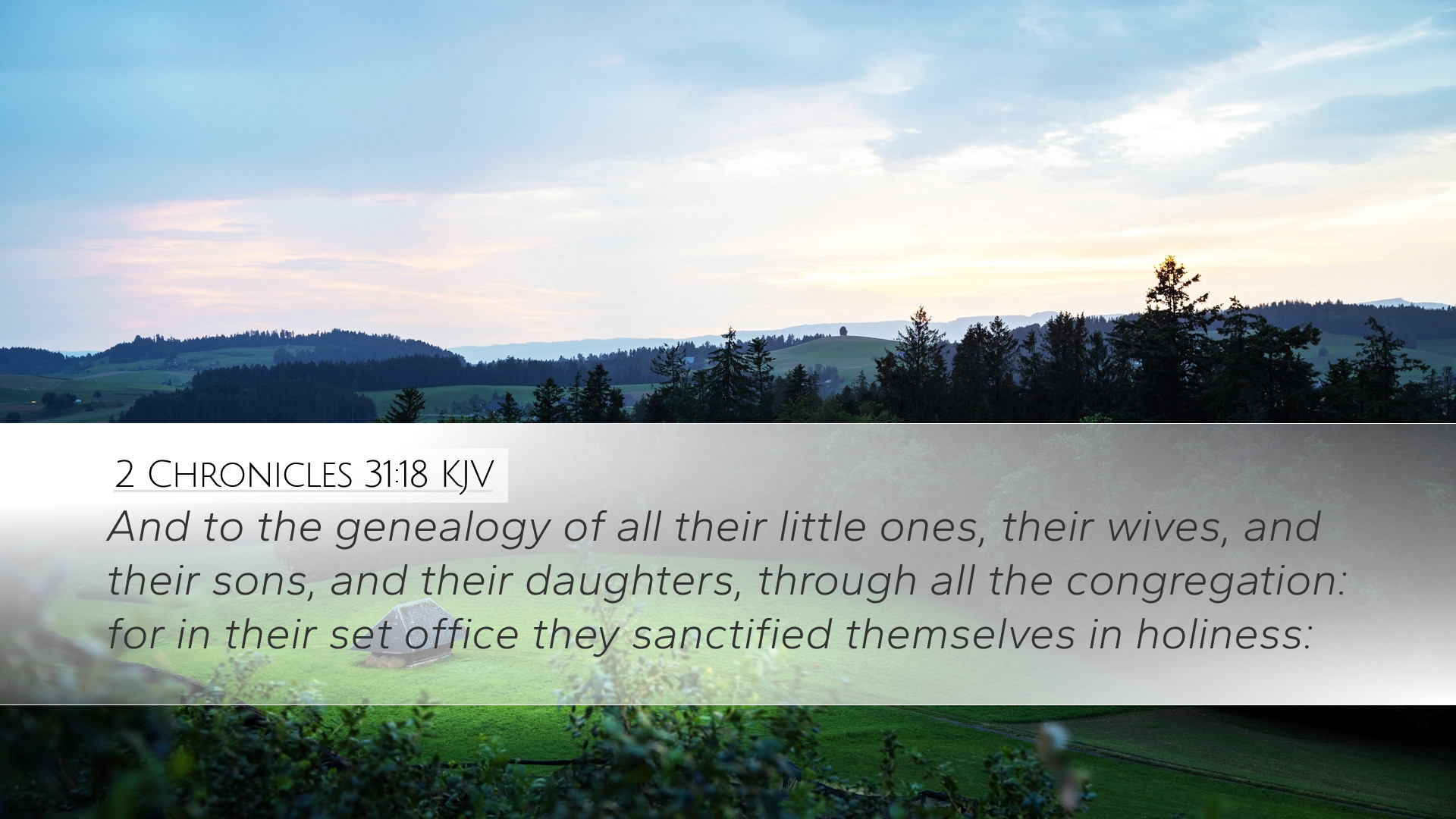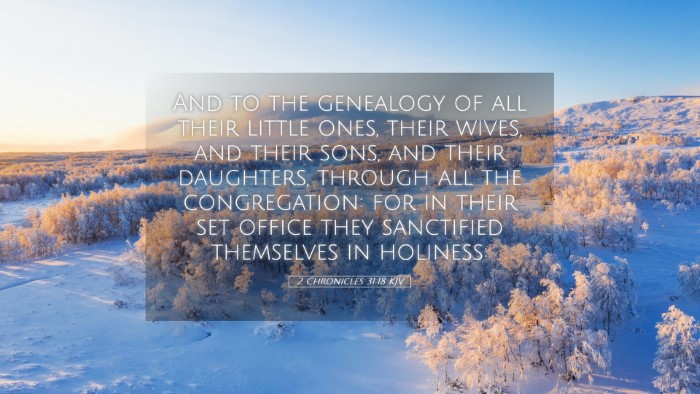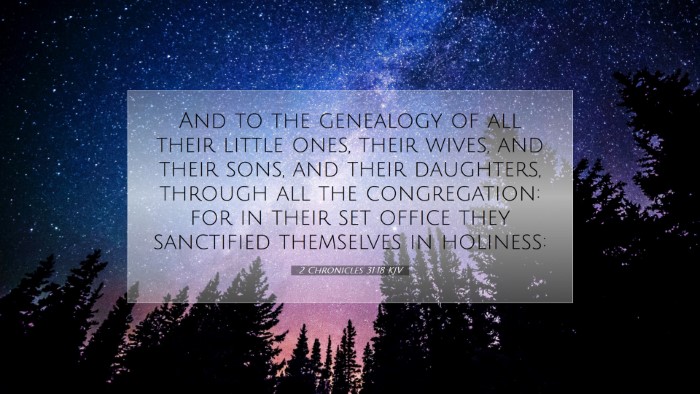Commentary on 2 Chronicles 31:18
Verse: "And to the genealogies of the priests and Levites, and for every one that was found written in the genealogy, he gave his portion, whether great or small, of the male animals."
Contextual Overview
This verse appears in the historical context of King Hezekiah's religious reforms in the Kingdom of Judah. Following a long period of idolatry and neglect of temple worship, Hezekiah took significant steps to restore the proper worship of Yahweh. This included the purification of the temple and the reinstatement of the Levitical priesthood, ensuring that all priests and Levites were maintained according to their genealogical lines.
Insights from Public Domain Commentaries
Matthew Henry's Commentary
Genealogical Order: Matthew Henry emphasizes that the genealogies of the priests and Levites were maintained meticulously. This attention to genealogical records was crucial, not only because of the Levitical laws but also for the integrity of worship and the Aaronic duties. These records ensured that only individuals who belonged to the priestly line were permitted to serve in the temple, thus upholding the sanctity and order of worship.
Divine Provision: He highlights the act of distributing portions to the priests and Levites as a form of divine provision. This allocation reflects God’s promise to supply the needs of His servants, ensuring that they could dedicate their lives to worship and service without lacking in their daily necessities.
Albert Barnes' Notes
Inclusivity in Provision: Barnes points out that Strikingly, Hezekiah's reforms were inclusive; Hezekiah provided for every priest and Levite, regardless of their standing or priestly lineage. It reflects the grace within the temple system, where both prominent and lesser-known priests could participate in divine service. In this provision, we see a foreshadowing of the New Testament concept that all believers are part of a royal priesthood (1 Peter 2:9).
Significance of Male Animals: Barnes also notes the significance of the male animals offered as portions. Male sacrifices are often associated with consecration and special dedication to God, symbolizing the offering of oneself wholly to divine service.
Adam Clarke's Commentary
Restoration of True Worship: Clarke discusses the broader implications of this verse within Hezekiah's reforms. The restoration of worship is fulfilled through the proper allocation of these resources – demonstrating that worship and service to God extend beyond individual piety; it necessitates collective support and recognition of leadership roles within the community of faith.
Significance of Record-Keeping: Clarke further emphasizes the critical role of record-keeping in the spiritual community. He notes that by keeping accurate genealogical records, the leaders safeguarded their community’s worship practices against corruption and irregularities. This need for integrity within spiritual governance aids in maintaining holy living among the people.
Theological Implications
- The Importance of Heritage: This verse underlines the significance of heritage and lineage in establishing identity within the church. Just as priests were recognized according to their families, believers today are part of a greater heritage built upon Christ as the chief cornerstone (Ephesians 2:19-22).
- Community Responsibility: The distribution of resources reminds congregations of their communal responsibility towards those who lead and serve them. It fosters a culture of support for ministers and church leaders, essential for maintaining a healthy church environment.
- Honoring God's Servants: The act of ensuring that priests and Levites received their due portions stands as a reminder in today’s context to honor those who are in full-time service of the Gospel, providing them not only with material provisions but also spiritual support.
Conclusion
2 Chronicles 31:18 serves as a profound testimony to the importance of organization, provision, and respect in the worship of God. The careful attention to genealogies in the context of King Hezekiah's reign reflects a holistic approach to spiritual leadership and community resources. As modern-day believers, reflecting on this passage inspires us to prioritize the sustenance and recognition of those who have dedicated their lives to serving in God’s house, ensuring that our worship remains both heartfelt and structured, guided by the principles of grace, community, and divine provision.


